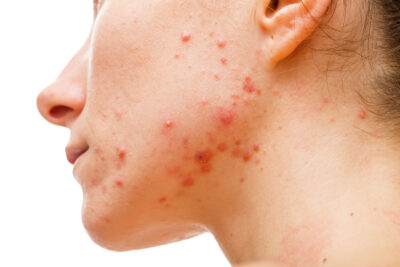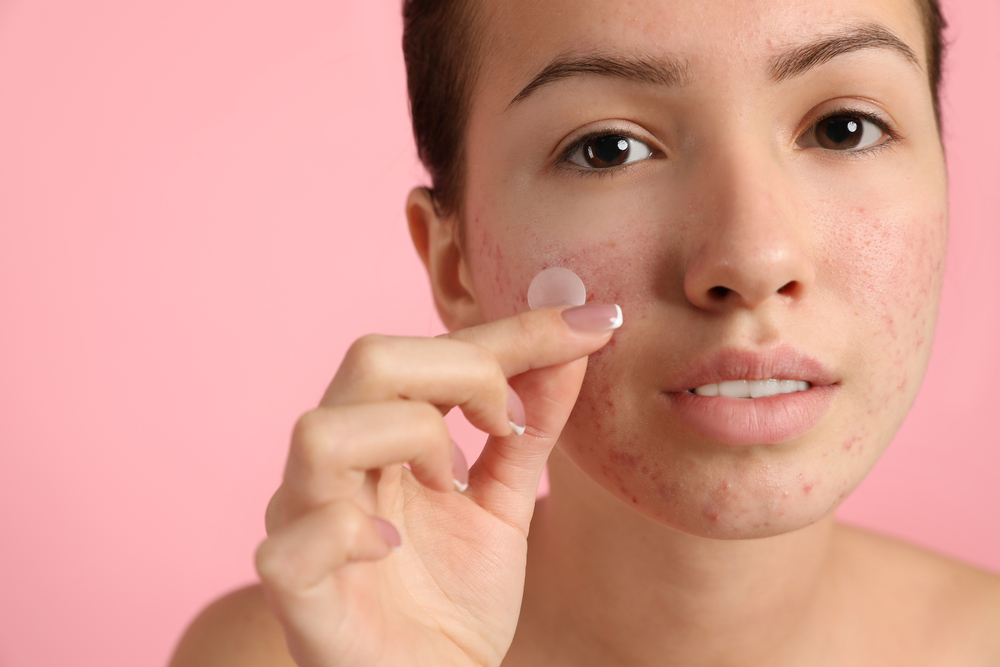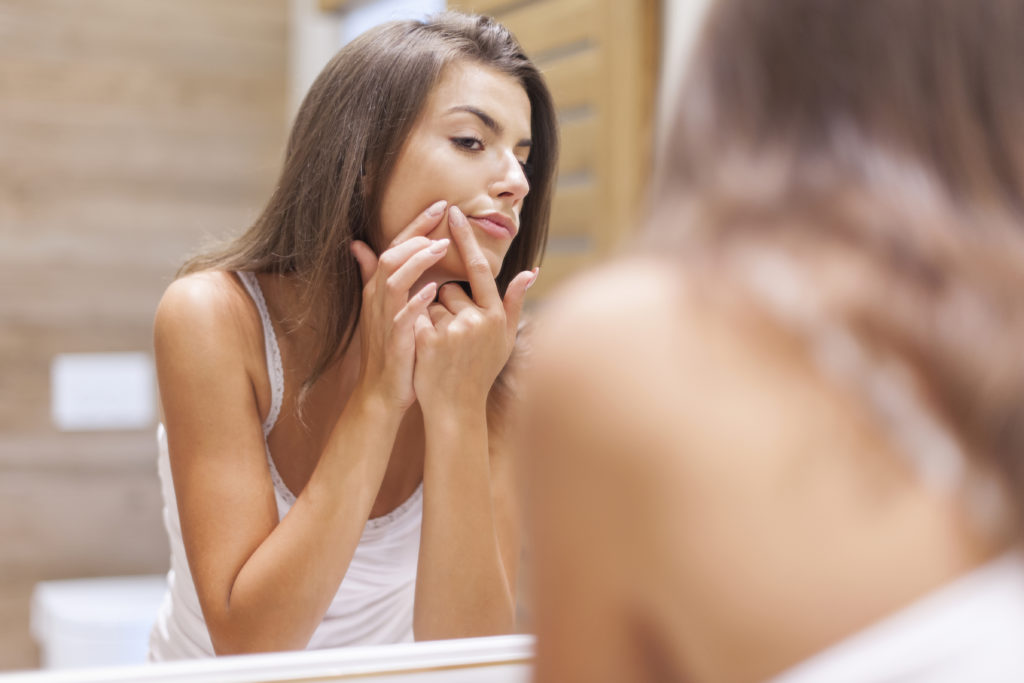Even those who normally have clear skin may find themselves faced with hormonal breakouts around the time of the month. Your period is already a trying time – you may be moody, you may be bloated, and cramps can be so painful that some women can’t go to work during their time of month. Adding period acne to the mix can feel like cruel and unusual punishment.
Period acne is fairly common, especially for those who are already acne-prone. But how does it differ from normal acne, and how can you deal with it?

How Is Period Acne Different From Normal Acne?
Normal acne can result from many different sources. Your skincare, what you eat and drink, whether or not you’re someone who touches their face a lot, your hormones… Internal and external factors alike can contribute to pesky pimples.
Period acne, however, usually results from changes in your hormones. Around your time of month, your estrogen levels decrease. This causes testosterone to become your prominent hormone. Testosterone stimulates your sebaceous glands, which can cause your skin to secrete more sebum. Sebum is your skin’s lubricant, but when there’s too much of it, it can end up clogging your pores and causing inflammation – and ergo, breakouts.
In teenagers, period acne tends to appear around their T-zone. In adults, they usually get hormonal acne around their mouth and jawline. The type of acne experienced can vary, from whiteheads to blackheads to painful cysts.
How To Deal With Period Acne
Dealing with hormonal breakouts can be a bit different than dealing with normal acne. If you regularly struggle with menstrual acne, it’s best to consult with your dermatologist. They will be able to provide you with treatment options specific to your skin and your health history.
Given that acne can result from many different sources, ranging from your diet to your stress levels and more, it’s important to understand all possibilities before declaring that your hormones are solely to blame.
That said, there are some helpful things that you can do to deal with period acne.
#1. Keep A Skin Diary
If you struggle with menstrual acne, it can be helpful to keep a diary that tracks your skin changes throughout your cycle. Many people find that their skin looks its best while they are ovulating while their acne flares up a week or so before their period begins.
After a few months, you can notice common patterns. You can adjust your skincare and diet accordingly. Your dermatologist will be able to help you with options specific to you.
#2. Don’t Pop Pimples!

Popping pimples is oh-so-tempting, we know. It can feel very satisfying to get that grossness out. However, what many people don’t know is that popping pimples can actually make your acne worse. This is because it causes the inflammation to spread under your skin and exposes your pores to new bacteria. You especially don’t want to try to pop cystic acne. Not only can this be excruciating, but it can worsen your acne problems.
If you find yourself prone to popping pimples, you may find pimple patches helpful. These help both to treat the pimples themselves, as well as to deter you from picking at them.
#3. Adjust Your Skincare Routine
You may switch to a gentler cleanser and over-the-counter acne products to alleviate active breakouts. Salicylic acid, benzoyl peroxide, glycolic acid, and tea tree oil can all help to remove dead skin cells and reduce inflammation.
Depending on the severity of your acne, your dermatologist may also prescribe acne treatments for you. For instance, if you have persistent acne that does not respond to over-the-counter treatment methods, your dermatologist may prescribe Accutane, retinoids, anti-androgens, and more.
If your acne is the result of hormonal imbalances, you can talk to your doctor about going on birth control. Birth control regulates your hormones, and many women have found that it has improved their acne.
#4. Limit High Glycemic Index Foods
Your glycemic index is a measure of how food spikes your blood sugar. High glycemic index foods, such as white bread, highly processed foods, and sugary drinks, can lead to increased inflammation – and ergo, worsened acne.

Around your time of the month, many people gravitate towards highly processed foods. In order to try to keep your acne in check, it’s best to limit your consumption of these foods and to steer more towards a healthier diet.
Do You Struggle With Period Acne?
Allen-Taintor Dermatology is here to help! If you don’t know what is causing your acne or it isn’t responding to treatment, we can help you determine the underlying cause and suggest appropriate treatments. Contact us today to schedule an appointment.
